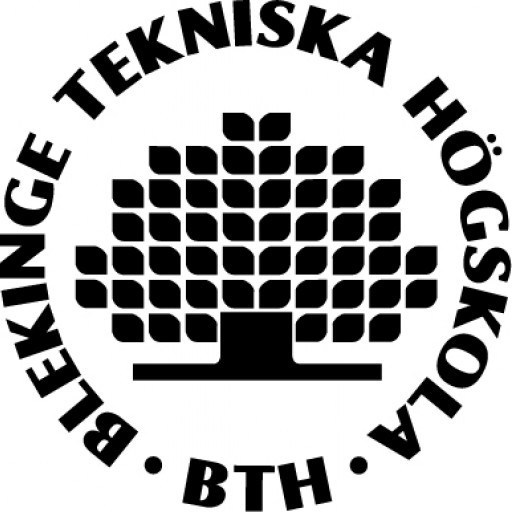Photos of university / #blekingetekniskahogskola
The Master's Programme in Electrical Engineering with Emphasis on Radio Communication at Blekinge Institute of Technology offers students an in-depth education focused on the design, development, and application of radio communication systems. Tailored for aspiring engineers seeking to specialize in wireless communication technologies, this programme combines fundamental electrical engineering principles with advanced knowledge in radio frequency systems, signal processing, and communication protocols. Throughout the two-year course, students will explore topics such as digital signal processing, antenna theory, radio network design, and emerging wireless technologies like 5G and beyond. The curriculum emphasizes practical skills through laboratory work, project-based learning, and collaboration with industry partners, preparing graduates for careers in telecommunications, wireless network development, and embedded systems. The programme also covers important aspects of electromagnetic compatibility, spectrum management, and security in communication systems, ensuring students are equipped to address modern challenges in the rapidly evolving field of radio communications. Students will have access to state-of-the-art laboratories and research facilities, enabling hands-on experience with real-world applications. Additionally, the programme encourages a global perspective, offering opportunities for international exchanges and collaborations, which enhance intercultural competence and global employability. Graduates will be well-positioned for employment in sectors such as telecommunications companies, working on the development of new wireless standards, or in research and academia, contributing to the growth of innovative communication technologies. With its strong industry ties and focus on sustainable and secure communication solutions, this programme prepares students to become leading engineers in the dynamic field of radio communication technology.
The Master's Programme in Electrical Engineering with Emphasis on Radio Communication at Blekinge Institute of Technology is designed to prepare students for advanced careers in the rapidly evolving field of wireless communications and radio systems. This comprehensive programme combines theoretical knowledge with practical skills, enabling graduates to develop innovative solutions for the telecommunications industry. Throughout the programme, students explore core concepts of electrical engineering, including circuit theory, signal processing, and electromagnetic theory, with a particular focus on radio frequency systems, antennas, and wireless transmission technologies.
The curriculum is structured to provide a deep understanding of modern communication networks, covering topics such as digital modulation, radio wave propagation, and spectrum management. Students engage with state-of-the-art tools and simulation software to design, analyze, and optimise radio communication systems. Specialised courses delve into topics like radio network planning, satellite communication, and the integration of wireless systems into existing infrastructure. The programme also emphasizes sustainability and energy-efficient design principles, preparing students to address current industry challenges in eco-friendly technology development.
In addition to technical coursework, students develop essential skills in project management, teamwork, and scientific communication through collaborative projects and presentations. The programme offers opportunities for internships and industry collaborations, providing practical experience and networking opportunities with leading companies in the telecommunications sector. The culmination of the programme is a master's thesis, where students undertake independent research on a relevant and innovative topic within radio communication.
Graduates of this programme are well-equipped to work in various roles such as radio network engineer, wireless system designer, RF engineer, or research scientist. They can pursue careers in telecommunications companies, technology firms, research institutions, or start their own ventures. The programme also provides a solid foundation for doctoral studies in electrical engineering or related fields. With its blend of advanced technical training and practical experience, the Master's Programme in Electrical Engineering with Emphasis on Radio Communication prepares students for the dynamic challenges of tomorrow’s wireless communication landscape.
Program requirements for the Master's Degree Programme in Electrical Engineering with Emphasis on Radio Communication at Blekinge Institute of Technology include a bachelor's degree in Electrical Engineering or an equivalent qualification that provides a solid foundation in electronics, signal processing, telecommunications, and computer engineering. Applicants must demonstrate proficiency in English, typically through standardized tests such as IELTS or TOEFL, meeting the minimum score requirements specified by the university. Prior coursework or experience in radio communication, wireless networks, antenna theory, or digital signal processing is advantageous and may be taken into consideration during the admission process. The program emphasizes a combination of theoretical knowledge and practical skills, so relevant internships or project experience can strengthen an application. Candidates should submit a completed online application form before the deadline, including academic transcripts, a CV, motivation letter, and any relevant certificates. Additionally, for non-EU/EEA applicants, proof of sufficient funds to cover tuition fees and living expenses is required. The selection process involves a review of academic records and motivation, with the aim of admitting students who demonstrate a strong technical background, motivation for radio communication topics, and the ability to succeed in a project-based learning environment. It is also recommended that applicants check for any specific prerequisites or recommended courses listed on the program's official webpage. Once admitted, students are expected to participate actively in coursework, seminars, and project work, often collaborating in teams on practical design and research projects. The program may also require students to complete a thesis project related to radio communication systems, which involves original research and application of engineering principles. Continuous assessment through examinations, assignments, presentations, and project deliverables ensures that students meet the learning outcomes. International applicants should consult the university's guidelines regarding language requirements, visa procedures, and orientation programs designed to support integration into the student community. Overall, the program aims to prepare graduates for advanced careers in radio communication, wireless technology development, telecommunications industry, or academia, equipping them with both theoretical expertise and practical competencies needed in the evolving field of electrical engineering.
The financing of the Electrical Engineering with Emphasis on Radio Communication program at Blekinge Institute of Technology is primarily based on Sweden's publicly funded higher education system, which offers tuition-free education for students from the European Union/EEA and Switzerland. For these students, tuition fees are waived, and the primary financial considerations include living expenses, study materials, and other personal costs. International students from outside the EU/EEA are usually required to pay tuition fees, which vary depending on the program and level of study but are typically around SEK 145,000 to SEK 195,000 per academic year. To support students financially, BTH offers various scholarships, including tuition fee waivers and mobility grants, which are competitive and based on academic excellence and financial need.
Students are encouraged to seek external funding sources such as scholarships from government agencies, international organizations, or private foundations, many of which support students pursuing engineering and technical degrees. Students can also apply for student loans and grants available through the Swedish National Board of Student Aid (CSN), which provides financial support to both Swedish and international students residing in Sweden. CSN loans often cover living costs and are repayable upon graduation, with interest rates that are relatively low.
Apart from scholarships and loans, students may explore part-time employment opportunities available on or near campus, which can supplement their income during studies. The university collaborates with local industries and companies, sometimes offering internship opportunities that can provide stipends or wages. Additionally, some degree programs incorporate industry projects that might include stipends or other forms of financial support for students engaged in practical training.
Overall, the financial landscape for students enrolled in the Electrical Engineering with Emphasis on Radio Communication program is supported by Swedish government funding mechanisms, university scholarships, external funding opportunities, and employment prospects, making it feasible for motivated students to finance their studies without excessive financial burden.
The Bachelor's Programme in Electrical Engineering with an Emphasis on Radio Communication at Blekinge Institute of Technology offers students a comprehensive education in the field of electrical engineering, focusing specifically on the principles and applications of radio communication. The program is designed to equip students with theoretical knowledge and practical skills necessary for designing, analyzing, and managing wireless communication systems. Throughout the duration of the program, students engage with a wide range of topics including signals and systems, radio frequency engineering, digital communication, wireless networks, antenna theory, and electromagnetic compatibility.
Curriculum includes coursework in mathematics, physics, computer science, and engineering principles, providing a solid foundation for understanding the complex nature of radio communication systems. Practical training is emphasized through laboratory work, projects, and collaborations with industry partners, ensuring students gain real-world experience. The program also prepares students to handle technological innovations in mobile communication, satellite communication, IoT, and other emerging areas within radio frequency applications.
Students have access to state-of-the-art laboratories equipped with modern communication technology and simulation tools. The program's teaching staff consists of experienced researchers and industry professionals dedicated to guiding students through theoretical and applied aspects of electrical engineering. Upon graduation, students are well-prepared for careers in telecommunications companies, network providers, electronics manufacturers, and research institutions. They may also pursue further studies at the master's level or engage in entrepreneurial activities related to radio communication technologies.
The program encourages international mobility, with options for exchange studies at partner universities worldwide. It emphasizes sustainable development and innovation, aligning education with societal needs and technological progress. Graduates of this program will be capable of contributing to the development of advanced wireless communication solutions, improving connectivity, and advancing the digital society. The program also aims to foster critical thinking, problem-solving skills, and lifelong learning habits, which are essential in the fast-evolving technology landscape of radio communications.





